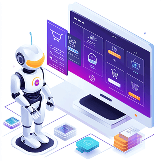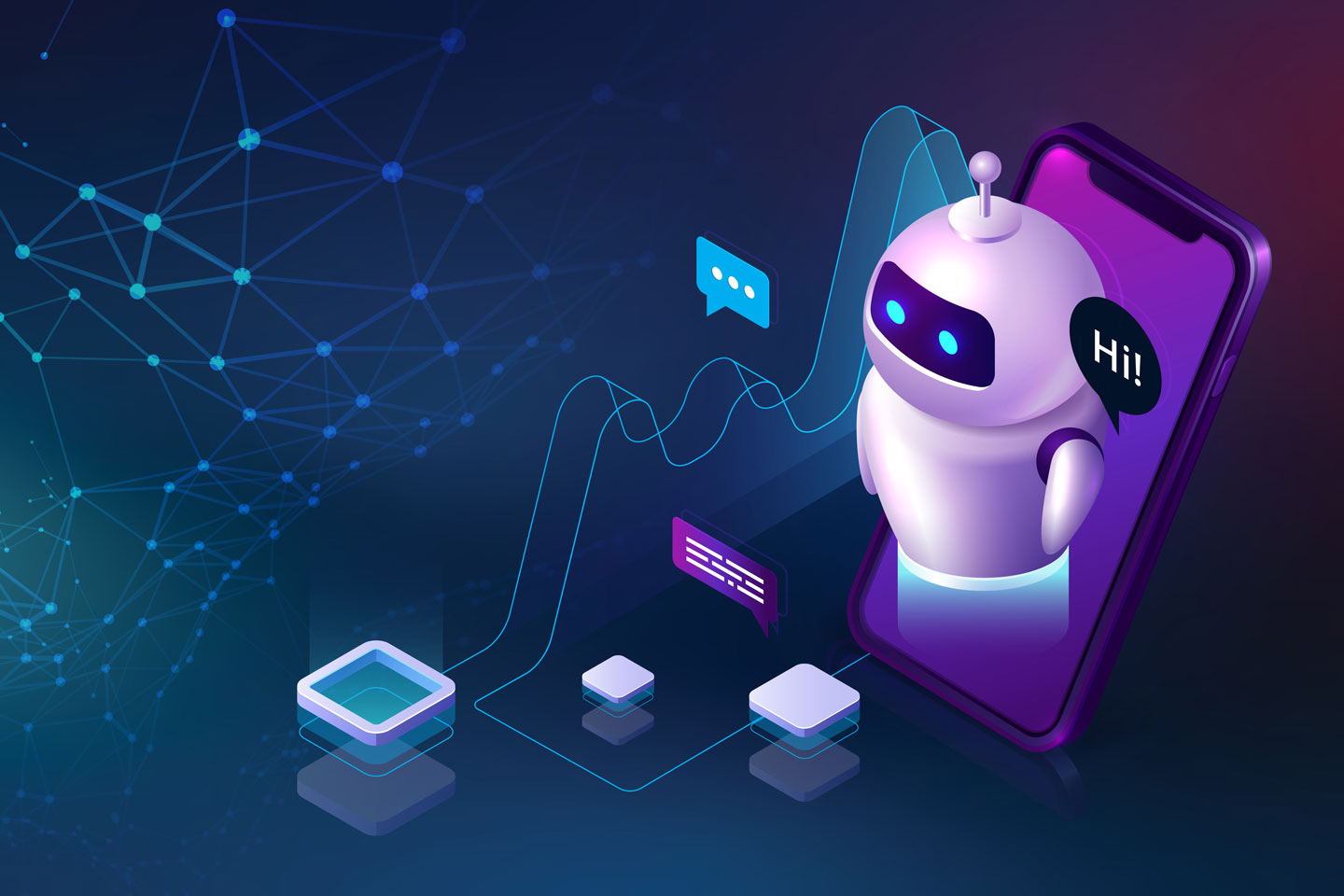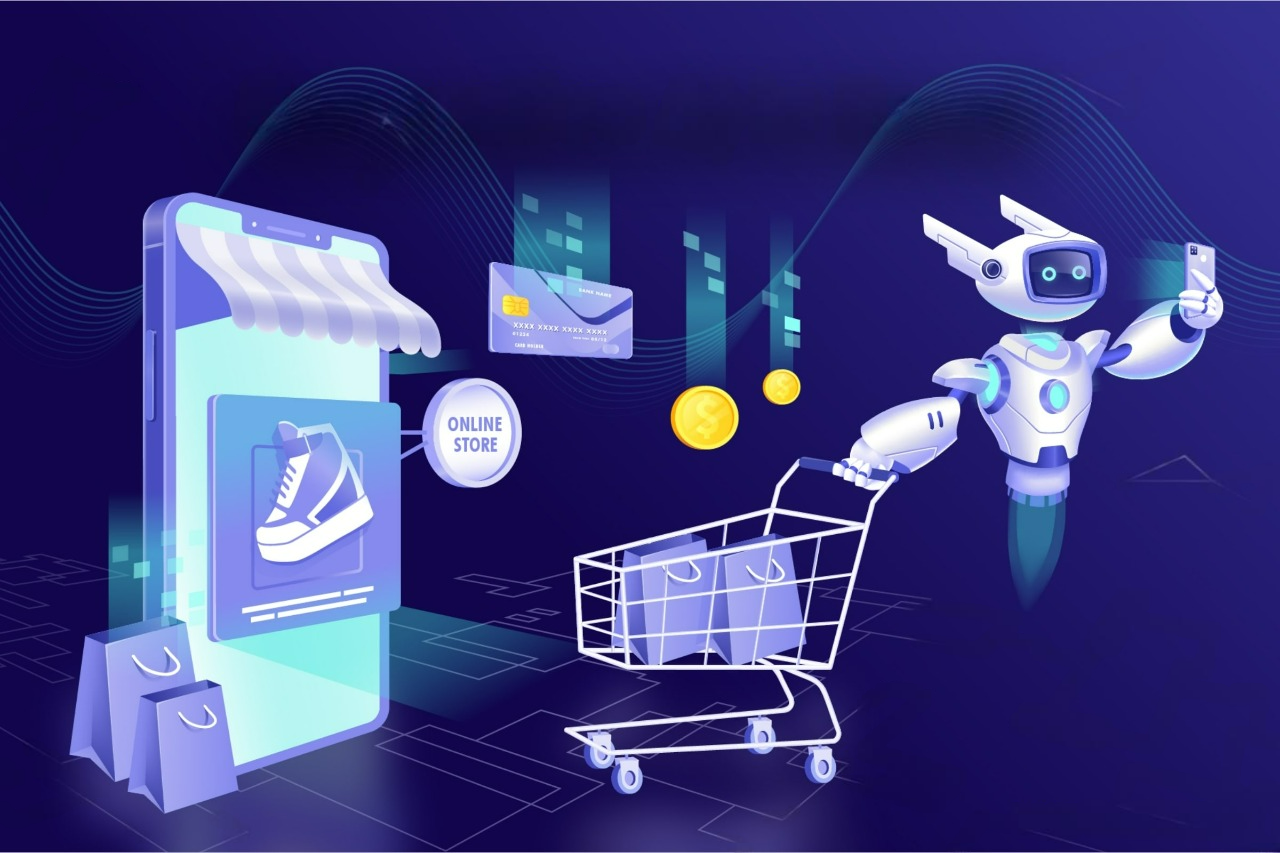Introduction
The education sector is undergoing a digital revolution, with Artificial Intelligence (AI) playing a key role in enhancing learning experiences, personalizing education, and automating administrative tasks. AI-driven solutions are making learning more interactive, accessible, and efficient for students, teachers, and institutions.
In this post, we explore how AI is transforming education, the key applications, and the future of AI-powered learning.
Key AI Applications in Education
1. Personalized Learning with AI
AI-powered platforms adapt to individual student needs, making learning more effective.
✔ AI-driven tutoring systems provide customized lessons based on student progress.
✔ Adaptive learning platforms adjust difficulty levels to match student abilities.
✔ AI-powered feedback systems help students improve in real time.
🔹 Example: Duolingo uses AI to personalize language lessons, improving learning efficiency.
2. AI Chatbots for Student Support & Engagement
AI chatbots enhance student engagement by providing instant responses to academic queries.
✔ 24/7 virtual tutors help students with homework and coursework.
✔ AI-powered chatbots answer administrative questions about schedules, fees, and exams.
✔ AI-driven interactive learning makes education more engaging.
🔹 Example: Arizona State University’s AI chatbot, Sunny, assists students with administrative tasks and coursework.
3. Automated Grading & AI-Powered Assessments
AI reduces the workload for educators by automating grading and assessments.
✔ AI-driven grading systems evaluate multiple-choice and written assignments.
✔ Plagiarism detection AI ensures academic integrity.
✔ AI-powered exam proctoring prevents cheating in online tests.
🔹 Example: Turnitin uses AI to detect plagiarism and assess writing quality in student submissions.
4. AI for Special Education & Inclusive Learning
AI enhances accessibility for students with disabilities through assistive technologies.
✔ Speech-to-text AI helps students with hearing impairments.
✔ AI-powered text-to-speech assists visually impaired learners.
✔ AI-driven language translation helps non-native speakers understand lessons.
🔹 Example: Microsoft’s Immersive Reader uses AI to help students with dyslexia and reading difficulties.
5. AI in Educational Administration
AI streamlines administrative processes, reducing workload and improving efficiency.
✔ Automated attendance tracking using facial recognition.
✔ AI-powered scheduling systems optimize lesson planning.
✔ Data-driven student performance tracking helps educators identify struggling students.
🔹 Example: Carnegie Learning uses AI to analyze student performance and provide personalized recommendations.
Benefits of AI in Education
✅ Personalized Learning – AI tailors lessons to each student’s pace and understanding.
✅ Improved Student Engagement – AI chatbots and virtual tutors provide instant support.
✅ Time-Saving for Educators – AI automates grading and administrative tasks.
✅ Increased Accessibility – AI-powered tools assist students with disabilities.
✅ Better Learning Outcomes – AI analytics help educators track student progress.
Challenges of AI in Education
🔸 Data Privacy & Security: AI collects student data, requiring strong security measures.
🔸 High Implementation Costs: Advanced AI tools may be costly for some institutions.
🔸 Teacher Adaptation: Educators need training to use AI-powered teaching tools effectively.
🔸 Digital Divide: Not all students have equal access to AI-driven learning platforms.
The Future of AI in Education
🚀 AI-Powered Virtual Classrooms – AI will create fully immersive, interactive online learning experiences.
🚀 AI-Driven Career Counseling – AI will analyze student skills and recommend career paths.
🚀 Gamified AI Learning – AI-powered educational games will make learning fun and engaging.
🚀 AI & Emotional Intelligence – AI tutors will detect student emotions and adjust teaching styles accordingly.
Conclusion
AI is revolutionizing education, making learning more personalized, accessible, and efficient. Schools, universities, and edtech companies that integrate AI will enhance student engagement, reduce administrative workload, and improve overall learning experiences.
Want to integrate AI into your educational platform? Contact us to explore AI-powered solutions for learning!










